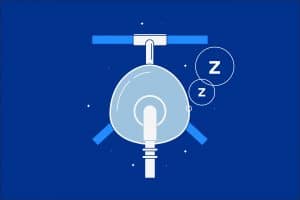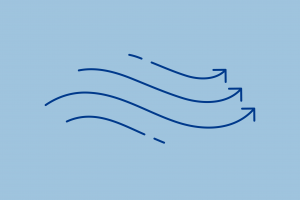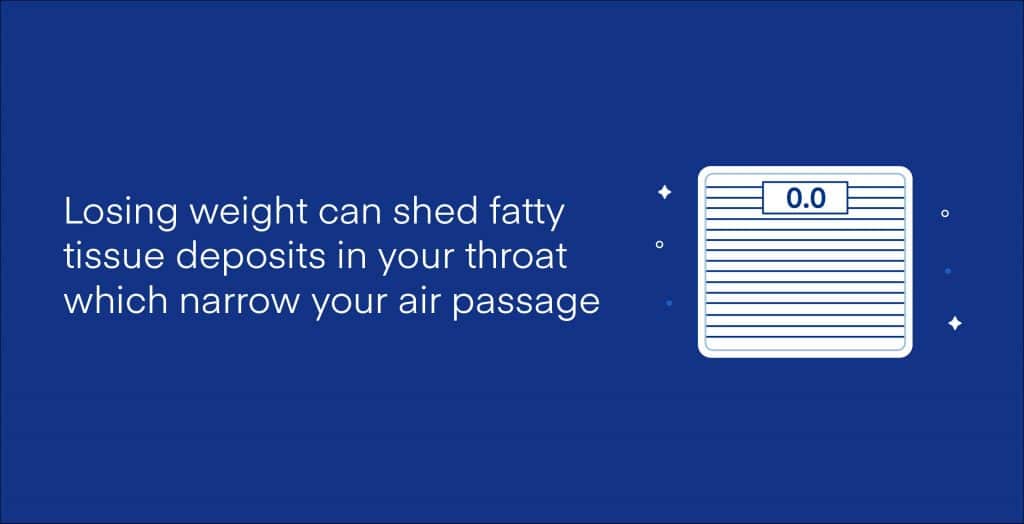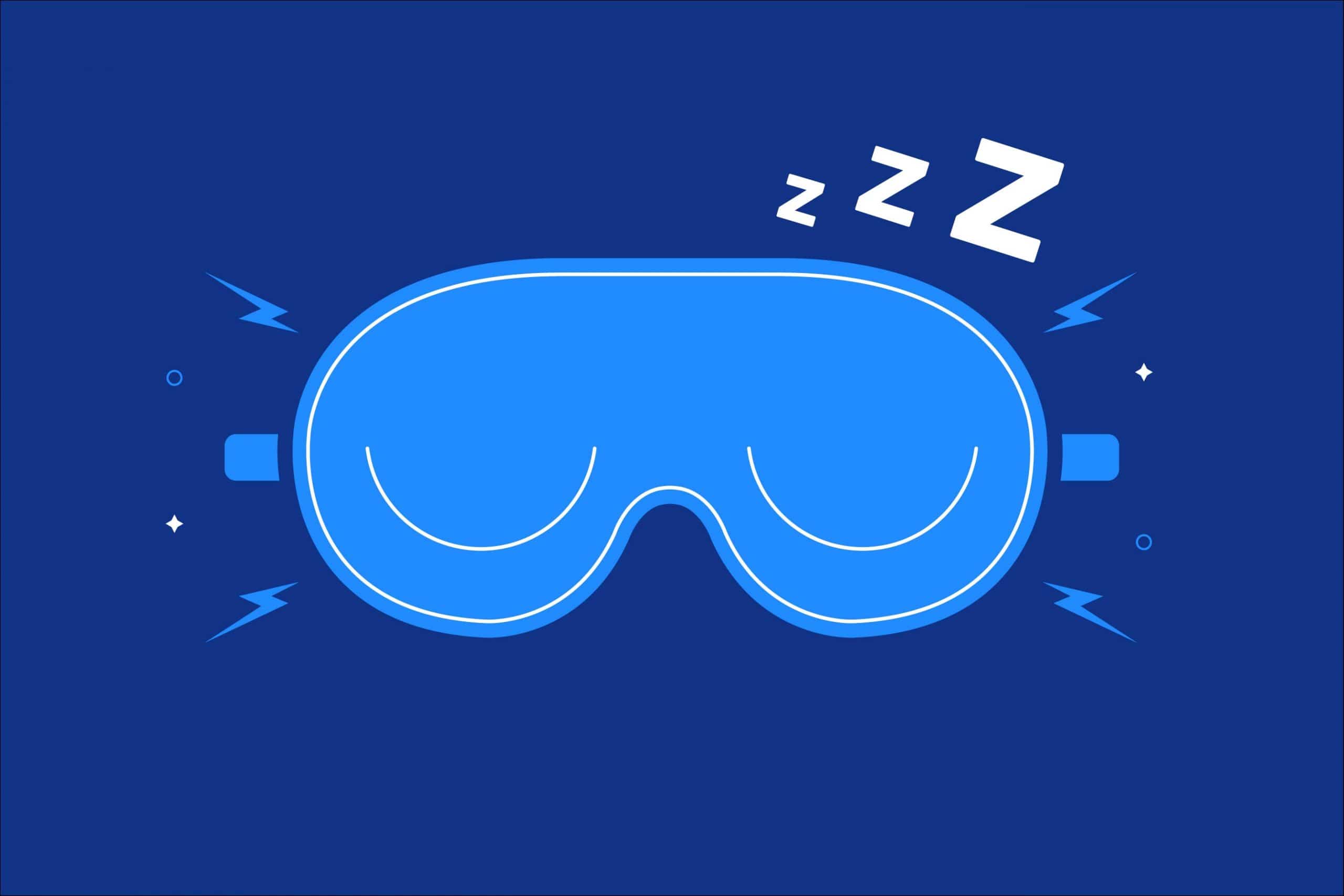Key Takeaways
- Snoring Can Indicate Underlying Health Issues: Snoring is not just a nuisance but can also be a sign of underlying health problems, especially if it is loud and persistent. It may be associated with conditions like obstructive sleep apnea (OSA), which can have serious health consequences, so it’s important to address snoring.
- Lifestyle Changes Can Help Reduce Snoring: There are several lifestyle changes and home remedies that can be effective in reducing or eliminating snoring. These include maintaining a healthy weight, avoiding sleeping on your back, doing throat exercises, using nasal strips or dilators, and using an adjustable bed or pillows to keep your head elevated.
- Medical Evaluation and Treatment May Be Necessary: If snoring persists despite lifestyle changes, a medical evaluation by a healthcare professional is essential. They can identify the underlying causes of snoring, which may include sleep disorders like OSA, and recommend appropriate treatments such as medical devices or surgical procedures, depending on the severity and cause of the snoring.
Snoring is an involuntary action, but there are ways to stop. No one likes sleep disruptions, nor do they like to hear how their snoring kept their sleep partner awake all night.
Apart from being embarrassing and causing sleep deprivation, snoring can cause other health problems. According to a recent study, snoring may make you vulnerable to developing obstructive sleep apnea (OSA), a severe condition in which breathing stops and starts intermittently during sleep. The poor sleep resulting from this can cause excessive daytime sleepiness and other health issues.
“OSA is a serious problem because it places tremendous stress on your heart,” says behavioral sleep specialist Dr. Jade Wu, Ph.D. “In the sleep clinic, this is always our top priority to treat snoring in patients with sleep problems.”
Recurrent vibrations during snoring can lead to injuries in the upper airway and also prevent healing of the damaged tissues. These vibrations hinder the functioning of a neurotransmitter associated with healing throat muscles. Injured throat muscles tend to relax intermittently, blocking your airway during sleep. Preventing snoring can help you lower the risk of developing OSA.
What Causes Snoring?
 Snoring is caused by the soft palates of the throat constricting the airway, causing a vibration sound. A cold or sinus problem, back sleeping, anatomical deformities like a deviated septum or a large tongue, obesity, or sleep disorders like OSA may constrict your airways, making you snore.
Snoring is caused by the soft palates of the throat constricting the airway, causing a vibration sound. A cold or sinus problem, back sleeping, anatomical deformities like a deviated septum or a large tongue, obesity, or sleep disorders like OSA may constrict your airways, making you snore.
While a cold will eventually go away, anatomical abnormalities or a sleep disorder will require you to see a medical specialist and diagnose the issue behind your snoring. Only then can steps be taken to address it.
Common sleep disorders behind snoring include:
- Obstructive Sleep Apnea (OSA): This is a sleep disorder characterized by repetitive episodes of partial or complete obstruction of the upper airway during sleep. Snoring is a common symptom of OSA, along with pauses in breathing, gasping or choking during sleep, and excessive daytime sleepiness.
- Upper Airway Resistance Syndrome (UARS): UARS is a sleep disorder similar to OSA but with milder symptoms. It involves increased resistance to airflow in the upper airway, leading to snoring, frequent awakenings, and daytime sleepiness.
- Sleep-related Hypoventilation: This condition is characterized by abnormally shallow or slow breathing during sleep, resulting in decreased oxygen levels and increased carbon dioxide levels in the blood. Snoring can be a symptom of sleep-related hypoventilation.
The diagnosis of the underlying issues causing snoring typically involves a medical evaluation conducted by a healthcare professional. Here’s an overview of how they diagnose the root causes of your snoring.
Medical History
The healthcare professional will start by asking you questions about your snoring intensity, sleep habits, lifestyle, and any symptoms you may be experiencing. They will also inquire about your overall health and medical history to identify any underlying conditions that may contribute to snoring.
Physical Examination
A physical examination may be performed to assess your throat, neck, and nasal passages. The healthcare professional will look for any signs of anatomical abnormalities or obstructions that could be causing snoring.
Sleep Study
In some cases, a sleep study, also known as polysomnography, may be recommended. This involves spending a night at a specialized sleep center where your sleep patterns, breathing, and other physiological functions are monitored. This study helps identify if you have a sleep disorder such as sleep apnea, which is a common cause of snoring.
Additional Tests
Depending on the findings from the initial evaluation, additional tests may be conducted. These can include nasal endoscopy (using a flexible tube with a camera to examine each nasal passage), allergy tests, or imaging studies like X-rays or CT scans to further assess the airway and surrounding structures.
By combining the information gathered from your medical history, physical examination, and any necessary extra tests, healthcare professionals can determine the specific underlying factors contributing to your snoring. This comprehensive evaluation helps guide the development of an appropriate treatment plan tailored to your individual needs.
How to Stop Snoring?
 If you understand the cause of your snoring, you’ll be more likely to treat it successfully. Simple lifestyle changes and following home remedies may help treat snoring.
If you understand the cause of your snoring, you’ll be more likely to treat it successfully. Simple lifestyle changes and following home remedies may help treat snoring.
In some circumstances, you may need professional medical treatment to prevent or stop snoring, from prescribed medical devices or medicine to surgical treatments.
Lifestyle Changes
Lifestyle changes like working out, eating a light meal for dinner, losing weight, and avoiding sleeping pills may stop those sleep-disrupting snores.
Exercise and Weight Loss
When you work out, you tone your muscles, including your throat muscles. Loose muscles at the back of the throat tend to collapse and block the air passage during breathing. But toned muscles stay in place, reducing the chances of snoring.
When you lose weight, you shed the fatty tissue deposits in your throat which narrow your air passage. Shedding those extra deposits make room for a smooth passage of air, reducing snoring.
Eat a Light Meal for Dinner
If your stomach is too full, your diaphragm doesn’t have enough space to expand. Lack of space leads to strained breathing, and difficulty breathing during sleep triggers snoring. Eat a light meal for dinner and avoid going to bed right after to help digestion.
When food isn’t digested properly, there’s a risk of acid reflux when you sleep. Acid not only rises back to the esophagus but it may enter the airway, exacerbating snoring. Acid reflux also irritates the lining of the throat, leading to inflammation and congestion.
Anti-Snoring Throat Exercises
According to a 2015 National Library of Medicine study, Verified Source National Library of Medicine (NIH) World’s largest medical library, making biomedical data and information more accessible. View source oropharyngeal exercises effectively reduce snoring. The oropharynx is the middle section of the throat. It includes the tonsils, pharyngeal walls, soft palate, and tongue base.
Mouth and throat exercises tighten the muscles in the oropharyngeal regions, and toned muscles are less prone to collapsing and obstructing the airway. Following these simple exercises may ease snoring:
- Push the tip of the tongue against the roof of the mouth and slide it backward. Repeat the exercise 20 times, 3 times a day.
- Suck the tongue upward pressing it entirely against the roof of the mouth. Repeat the exercise 20 times, 3 times a day.
- Force the back of the tongue against the floor of the mouth and keep the tip of the tongue touching the bottom front teeth. Repeat the exercise 20 times, 3 times a day.
- Say the vowel “A” out aloud—doing so will elevate the back of the roof of the mouth and the uvula (tissue hanging from the rear part of the roof of your mouth). Repeat the exercise 20 times, 3 times a day.
- Put a finger in your mouth on each side and press outward while resisting your thumb and trying to hold your cheek in. Repeat this exercise 10 times, 3 times a day.
- Chew alternately on both sides of the mouth when you eat.
Home Remedies
Practicing some simple bedtime remedies at home such as getting an adjustable base for your bed, using nasal strips or drops, sleeping on your side, keeping a humidifier in your room, and taking over-the-counter anti-snoring medication may help.
Use an Adjustable Base
An adjustable base allows you to elevate your head and feet, decreasing the symptoms of Restless Legs Syndrome, high blood pressure, and even snoring, because keeping your head slightly elevated from the rest of your body opens up your airways.
Raise the Head with Pillows
 Similar to an adjustable bed but much less expensive, you can use a specialty anti-snoring pillow, such as a wedge pillow. These pillows are shaped like a triangle or a ramp and provide more support to elevate your upper body. Wedge pillows have other uses, such as being used with mattresses for sitting up as a backrest pillow.
Similar to an adjustable bed but much less expensive, you can use a specialty anti-snoring pillow, such as a wedge pillow. These pillows are shaped like a triangle or a ramp and provide more support to elevate your upper body. Wedge pillows have other uses, such as being used with mattresses for sitting up as a backrest pillow.
You can even arrange pillows into a makeshift pile to elevate the head. However, it will not be as comfortable as using a wedge pillow to stop snoring. Start by adding an extra pillow or two under your head while you sleep. This will help elevate your head and upper body slightly.
Place the pillows or use the wedge pillow in a way that raises your head and shoulders, creating a gentle incline. The goal is to keep your airways more open and prevent the collapse of throat tissues that leads to snoring.
Experiment with different pillow heights until you find the most comfortable and effective sleeping position. It should be high enough to make a noticeable difference in reducing snoring but not so high that it strains your neck or causes discomfort, and the perfect pillow height or loft will depend on your favorite sleep position.
Use Nasal Strips, Dilators or Drops
Nasal strips are adhesive strips that are placed on the outside of the nose, specifically over the bridge of the nose and across the nostrils. They are made of flexible materials and have spring-like bands that keep your nostrils pulled open, increasing space for air to pass through the nasal passages to the lungs.
On the other hand, nasal dilators are devices that are inserted into the nostrils. They are typically made of plastic or silicone and come in various shapes and sizes. Nasal dilators work by physically opening the nasal passages from the inside, providing structural support to keep them expanded.
Adhesive nasal strips may also be called external nasal dilators, while insertions to expand the nasal valves are known as internal nasal dilators. Both internal and external nasal dilators can provide temporary relief from nasal congestion and may be helpful for individuals with conditions such as nasal valve collapse, deviated septum, or allergies
If you have a stuffy nose and need temporary relief to sleep when sick, try nasal sprays to clear your airways.
Use Mouth Tape for Snoring
When we tape our mouths shut before we fall asleep, it helps to keep our air flowing through our nose instead of our mouth. This is important because breathing through the nose helps to keep the airway open and prevents the vibrations that cause snoring. You can use specialty medical-grade tape or pre-cut mouth tape, as the tape you have lying around your home can irritate your skin.
However, it’s important to remember that mouth taping for snoring is just a temporary solution, a soothing balm to fix your immediate sleep troubles. The underlying cause of snoring, my friend, may still be lurking beneath the surface, waiting to pounce on your peaceful dreams and affect your sleep quality.
Sleep on Your Side
Turning to your side is the best sleep position for improved breathing. It prevents muscles from collapsing at the back of your throat. Back sleeping may cause your throat muscles to collapse, making snoring worse. So if you’re used to sleeping this way, try taping a tennis ball to your back. This will train you to switch to your side. You can also try hugging a body pillow to try and stay in place as you sleep.
Use a Humidifier or Air Purifier
 A humidifier can help with snoring because it adds moisture to the air. When the air is too dry, it can irritate the nasal passages and throat, making them swollen and congested. This can cause snoring because the air has a harder time moving smoothly through the narrowed passages.
A humidifier can help with snoring because it adds moisture to the air. When the air is too dry, it can irritate the nasal passages and throat, making them swollen and congested. This can cause snoring because the air has a harder time moving smoothly through the narrowed passages.
The added humidity can soothe the nasal passages and throat, reducing snoring by lowering congestion and inflammation. When the air can move freely through open nasal passages without obstruction, it can allow for quieter breathing. Just avoid promoting too much moisture, as that can increase the risk of mold and mildew in the bedroom.
An air purifier works by filtering out tiny particles in the air, such as dust, allergens, and pollutants. It can help with snoring by improving the air quality in the room. When the air is cleaner, it reduces the chances of breathing in irritants that can trigger congestion or allergies, which can contribute to snoring.
Apart from helping with snoring, the benefits of air purifiers include easier allergy and asthma management, fewer odors, and the removal of airborne pollutants such as VOCs and mold spores.
Even just sleeping with a fan on can actually help reduce snoring for some people. A fan can create a gentle breeze that keeps the air moving, which can make it easier to breathe. When you can breathe more easily, there’s less chance of snoring. So, turning on a fan at night might be a simple and helpful way to reduce snoring and get a good night’s sleep.
Over-the-Counter Anti-Snoring Appliances
Some devices available over the counter open up your airway. They bring your lower jaw and tongue forward during sleep. These devices look like the mouthguards used by athletes and may be used for a few days to prevent snoring.
Medical Treatment
Sometimes you may need medical treatment to combat snoring. Doctors may suggest a medical device or a surgical procedure after examining the cause of your snoring. Surgical treatrements are typically reserved for extreme cases, with non-invasive treatments and lifestyles as the first line of defense
Medical Devices
Devices like a CPAP machine, palatal implants, customized dental devices, and lower jaw positioners may tackle the root cause of your snoring.
- Continuous Positive Airway Pressure (CPAP): The most common device used by sleep apnea patients, the CPAP machine with mask helps to keep your airway open. The machine blows pressurized air into a mask to be worn over your mouth and nose.
- Palatal Implants: The tiny implants in your soft palate prevent it from collapsing and reducing space in the airway. Palatal implants stiffen your soft palate and changes the way air flows around it causing minimal to no vibrations.
- Customized dental devices and lower jaw positioners: These devices open your airway by pushing forward your tongue and lower jaw.
Surgical Procedures
Minor procedures like the Laser-Assisted Uvulopalatoplasty or Somnoplasty may eliminate snoring for good. However, surgery for sleep apnea is typically only recommended when other measures have failed.
Laser-Assisted Uvulopalatoplasty (LAUP)
During LAUP, a laser is used to shorten your uvula and soft tissues. A shortened uvula doesn’t hinder air passage.
Somnoplasty
During somnoplasty, tissues of the uvula and soft palate are removed. Low levels of radiofrequency heat are used for tissue removal.

FAQs
How do I stop snoring ASAP?
If you’re looking to stop snoring as soon as possible, there are a few things you can try. First, make sure you maintain a healthy lifestyle by eating well, exercising regularly, and managing your weight. This can help reduce excess fat around your throat and decrease the likelihood of snoring.
Sleeping on your side instead of your back may also help, as it can prevent your tongue and throat tissues from blocking the airway. Using nasal strips or nasal dilators can lift nasal passages and improve airflow through your nose, reducing the chances of snoring. Even as you seek relief with these self-help remedies, consult with a healthcare professional who can provide further guidance and explore potential underlying causes of your snoring.
Why do I snore so badly?
One common reason for snoring is the relaxation of muscles in the throat during sleep. When these muscles relax too much, they can partially block the airway, leading to snoring. Certain factors can contribute to this muscle relaxation, such as obesity, alcohol consumption, smoking, or the use of sedatives.
Other causes of snoring can include nasal congestion due to allergies or a deviated septum, which can restrict airflow. Anatomical factors like enlarged tonsils or a long uvula (the tissue that hangs down at the back of the throat) can also contribute to snoring. Identifying the specific cause of your snoring can help you find the most appropriate solutions for managing it effectively.
How do you sleep with someone who snores?
Sleeping with someone who snores can be a challenge, but here are some tips to help you get a good night’s sleep. First, try using ear plugs to block out the snoring sound. You can also gently encourage the snorer to sleep on their side instead of their back to reduce snoring.
Another idea is to arrange pillows or use a special wedge pillow to elevate their head, which can help with airflow and lessen snoring. If the snoring continues to disturb your sleep, encourage the snorer to talk to a doctor for further help. Remember, communication is key,. Discuss these strategies together to find what works best for both of you!
Can snoring go away?
Absolutely! Snoring can go away or get much better with the right steps. Making healthy lifestyle choices like staying at a healthy weight and sleeping on your side can often help stop snoring. If snoring is caused by temporary stuff like allergies or a stuffy nose, fixing those problems can make a big difference too.
But remember, if snoring keeps happening even after trying these things, it’s a good idea to talk to a doctor for more help. They can figure out if there’s an underlying issue and suggest other treatments if needed. So don’t worry, snoring can go away with the right actions!
How long is too much snoring?
There isn’t a specific time that determines when snoring becomes too much, as it can vary from person to person. However, if snoring happens a lot and disrupts your sleep or your bed partner’s sleep, then it might be considered too much snoring.
If you’re snoring a lot and it’s causing other problems like gasping for air during sleep or feeling really tired during the day, it’s a good idea to talk to a doctor. They can figure out if there’s an underlying issue and suggest ways to help reduce snoring. It’s best to get it checked out to make sure everything’s okay!
Conclusion
If you experience loud, persistent, and frequent snoring you are most likely not getting enough sleep, or your sleep is low-quality. Seeking help will ensure a good night’s rest.
About the author
Geoff McKinnen is a writer focusing mainly on the healthcare industry and has written articles on everything from foods to help you lose weight to the connection between Alzheimer’s and sleep. Geoff’s passionate about helping readers improve their well-being to lead happier lives. Outside of work, Geoff enjoys cycling and hiking and believes that by leading a healthy lifestyle, he can help others do the same.
View all posts




